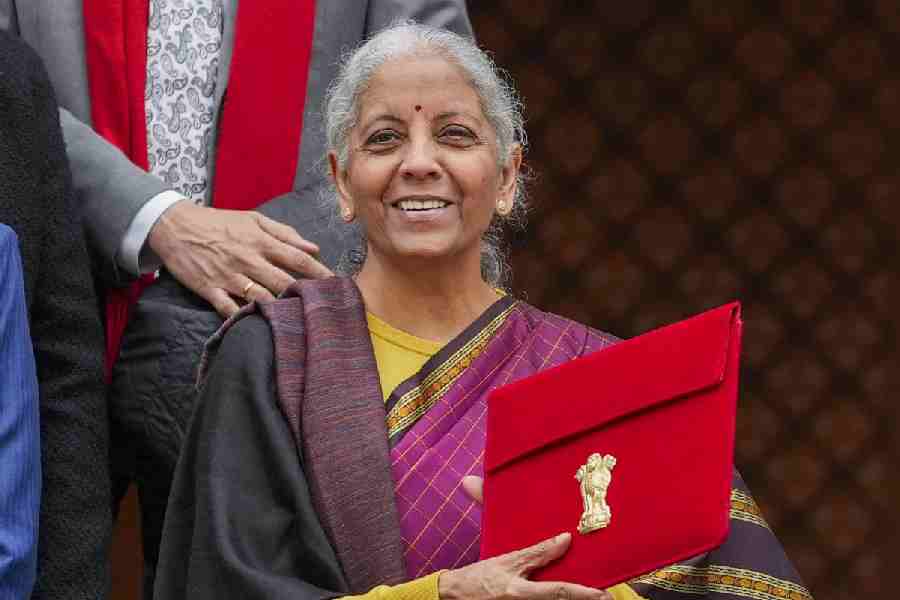nNihit Banerjee, son of a leading city-based doctor, would come to school in a rumpled shirt and creased trousers everyday. Slouching in one corner of the classroom, Nihit interrupted lessons by asking silly questions and making funny remarks. His erratic behaviour surprised teachers.
nVijay Deshmukh was offered commerce in Class IX despite brilliant scores in the final term of Class VIII. But his parents, both IT professionals, wanted their son to become a doctor. Vijay, who personally had no interest in science, agreed to repeat class VIII following parental pressure so that he could improve his tally and study science the next year. However, he found it demeaning to sit with his juniors in the same class and started “bunking” school. When his parents got to know of his irregular attendance, he was caned.
nFor bubbly Shivani, a tenth-grader in agirls’ school, life turned into a nightmare after the Teachers’ Day celebrations. The tomboyish athlete featured in a fashion show sporting a sherwani and churidar. A few days later, Shivani started receiving anonymous letters and calls from her juniors, confessing their “infatuation.”
“'I really like you. Will you be my friend? Please don’t say no.” Her phone kept ringing throughout the evening till late in the night. Shivani, with her boyish good looks, has started feeling awkward. But when a junior came up to her with a penknife saying, “I can even cut my hand for you”, she just could not take it anymore.
With rising behavioural distortion among students, schools are either hiring professional counsellors or are converting part of the faculty into counselling wing to beat the emotional stress among students. “The pressure to perform is tremendous. As a result, the children feel frustrated and it has various manifestations. Moreover, with parents hardly sparing any time for children, it has become the school’s responsibility to cater to the needs of the students,” says Lalita Sareen, principal of Jamshedpur Public School (JPS), who often counsels students. JPS has a counselling wing comprising two teachers, Pavni Rao and Soma Banerjee, along with the principal for the past six years. DBMS English School engaged a professional counsellor Meera Bugli, who took a diploma course in guidance and counselling after completing her master’s degree in psychology.
Students of Motilal Nehru Public School (MNPS), Sacred Heart Convent School (SHCS) and Church School (Beldih) have also been availing of the services of trained counsellors. But Ashok Patnaik, head of psychiatry department, Telco, contends, “When teachers and parents should be the pillars of strength, why do we require counsellors?” Patnaik, however, acknowledges the need for counselling.
“Fierce and aggressive competition, role diffusion — an identity crisis among students — and lack of role models make counselling necessary. Besides, parents need to devote time to children,” avers Patnaik.
“Initially there was no conscious effort to counsel students. When they had problems, they would come to us on their own. But over the years, we realised adequate training was necessary to handle their problems,” says Cashmira Kotwal, a teacher and counsellor of Sacred Heart Convent.
The trick lies in shoring up confidence level, helping them cope with peer pressure and the psychological changes during adolescence. According to Sameera Sinha, a professional counsellor at MNPS, “We need to understand our children and must devote quality time to them. With both parents working and getting home late, the child feels lonely. He has no one to confide in or share his secrets with. This apart, they crave for recognition and adulation, which when they do not get from their parents. As a result, they try to attract negative attention from the teacher in class.”
Domestic discord, corporal punishment by parents and gender bias have a negative impact on the child, says counsellor Meera Bugli. “The child’s concentration level falters, affecting studies. At times, peer pressure and the drive to perform also take their toll on them,” she adds.
While probing Nihit Banerjee’s problem, teachers found that he did not receive adequate attention at home and was jealous of the attention showered on his sister, a better student.
Referring to Shivani’s problem, Cashmira says, “Adolescents fail to distinguish the thin line between a crush and true love. This is where we help them.’’
“Schools are capitalising on vocational counsellors. The problems of students can easily be dealt with if they start confiding in teachers and parents. But in that case, teachers and parents will have to become their role models, ” says Patnaik. According to him, teachers confine their activity to “covering the syllabus” and do not tap the child’s potential. “At interactive meetings between parents and teachers, a child’s weaknesses are discussed. No one talks of enhancing the children’s potential. The child is caught between the parents and the teachers,’’ he adds. (Some names have been changed to preserve identity of the person)










